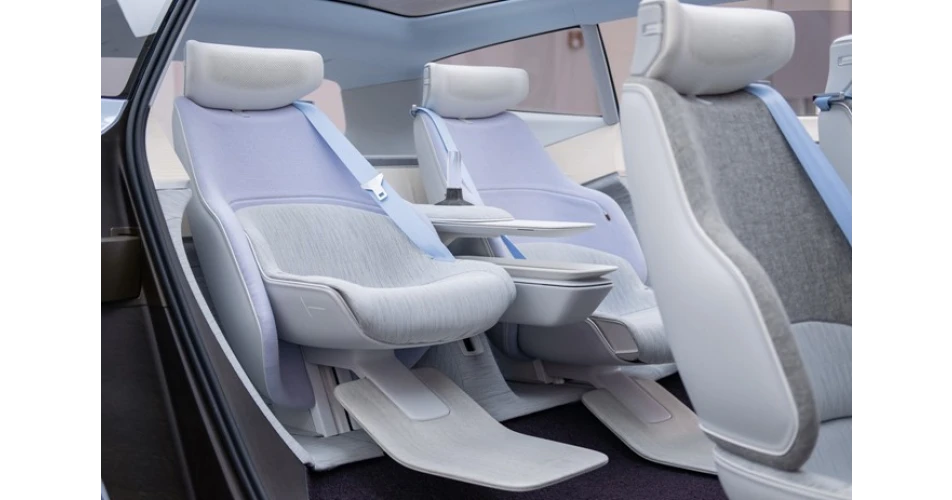
Volvo Cars has made a strategic investment in Bcomp, an innovative Swiss firm that develops high-performance lightweight materials based on natural fibres, through the Volvo Cars Tech Fund, its venture capital arm.
To create its materials, Bcomp uses flax fibres, a bio-based material that offers significant savings in terms of weight, energy use and emissions versus regular plastic parts. The material also enables design options for aesthetic surfaces.
Volvo Cars is actively exploring the use of natural fiber composites in its next generation of pure electric cars, while its strategic affiliate Polestar also aims to use Bcomp’s materials in forthcoming models.
Volvo Cars used Bcomp’s materials in its most recent concept car, the Volvo Cars Concept Recharge. Bcomp’s calculations show that compared to regular plastic parts, the natural fiber-based composites are up to 50 per cent lighter, use up to 70 per cent less plastic and generate up to 62 per cent lower CO2 emissions.
“This investment is yet another example of our commitment to sustainability and strategic focus on reducing our carbon footprint,” said Alexander Petrofski, Head of the Volvo Cars Tech Fund. “We have a long tradition of partnering with leading technology firms such as Bcomp, as we see joint benefits in helping them to scale and develop innovative products in global markets.”
Revealed in the summer of 2021, the Volvo Cars Concept Recharge demonstrates the steps Volvo Cars aims to take in all areas of pure electric car development to reduce its cars’ and its overall carbon footprint. The company plans to sell only fully electric cars by 2030 and aims to be a climate neutral business by 2040.
“We’re very encouraged by the possibilities offered by flax composites, which is why we used them both in the interior and on the exterior of the Volvo Cars Concept Recharge,” said Robin Page, Senior Vice President Design at Volvo Cars. “It is a material that is environmentally responsible with a very low carbon footprint that also delivers an attractive and natural aesthetic.”
Inside the Volvo Cars Concept Recharge, Volvo Cars has used a flax composite for the lower storage areas, the back of the headrest and the footrest. On the exterior of the car, the front and rear bumpers as well as the sill moldings consist of flax composites.
The ambition to constantly reduce emissions and become climate neutral by 2040 is part of Volvo Cars’ climate action plan, one of the most ambitious in the industry. Already by 2025, the company aims to reduce lifecycle CO2 emissions per car by 40 per cent compared to 2018.